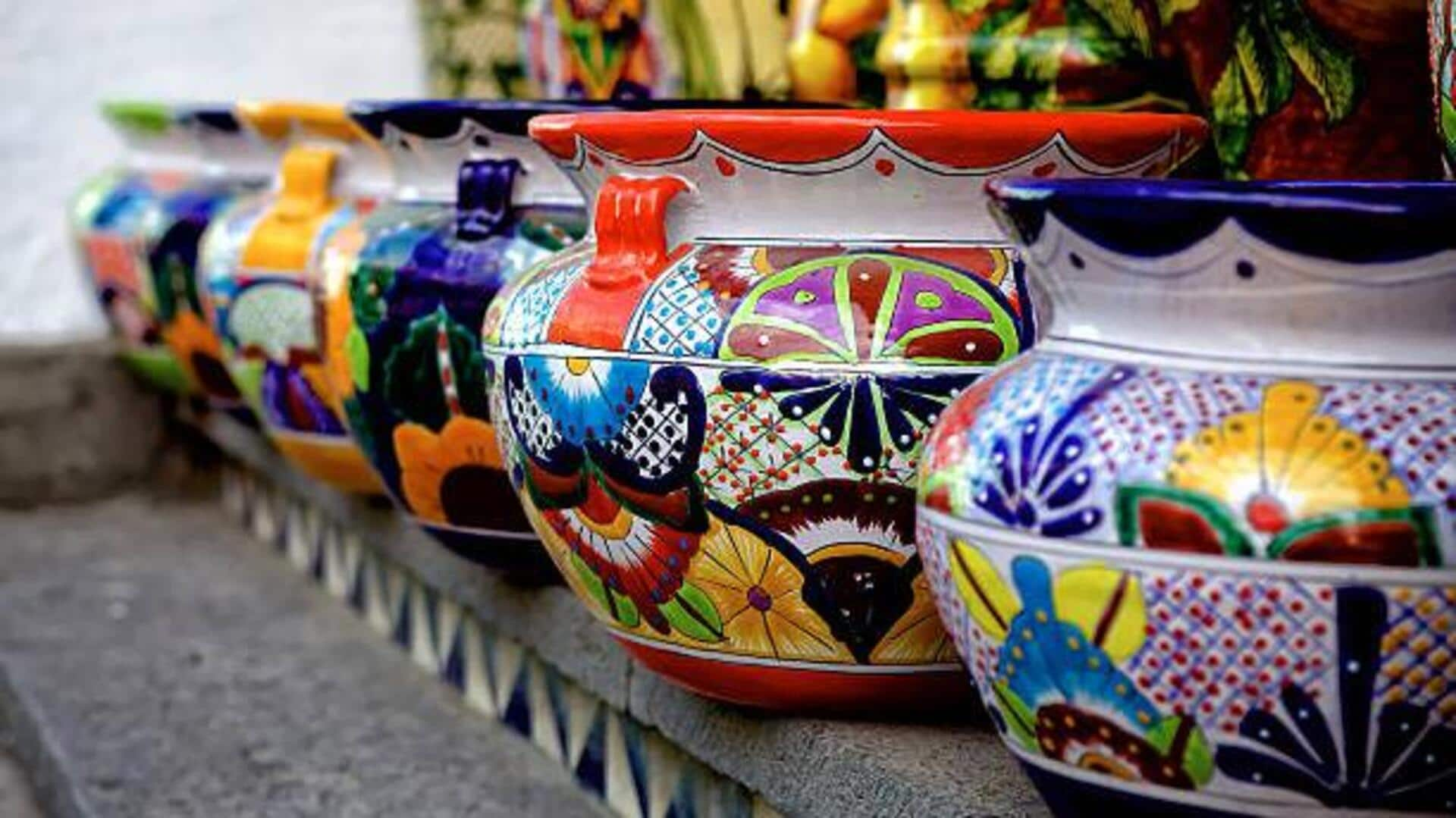
How to style your home with ceramic art
What's the story
With their rich cultural heritage and intricate designs, African ceramic art can give your home decor a unique twist. They are not just functional ceramics but also make for beautiful decorative pieces that can elevate any space. From vibrant colors to traditional patterns, African ceramics add a touch of authenticity and history to modern homes. Here are five ways to incorporate African ceramic art into home decor for an elevated aesthetic experience.
Pattern integration
Incorporate traditional patterns
Traditional African patterns on ceramics give depth and character to any room. These patterns often tell stories or represent cultural symbols, making each piece unique. By adding these designs into your home, you make a connection with Africa's rich history and traditions. Try vases or bowls with traditional motifs as centerpieces on tables or shelves for an eye-catching display.
Colorful accents
Use vibrant colors
African ceramics are famous for their beautiful colors that can liven up any corner. The use of bright hues like red, blue, and yellow can instantly add some warmth and energy to your decor. These colorful pieces work best in neutral settings where they can stand out as statement pieces. Place them smartly around the room to draw the attention and create a visual interest.
Fusion design
Mix modern with traditional
The perfect blend of modernity and traditional African ceramics can be achieved by combining the two. By pairing sleek furniture with handcrafted ceramic pieces, you can create a look that is both contemporary and timeless. The fusion allows you to enjoy the best of both worlds while maintaining a cohesive design theme throughout your home.
Practical decor
Highlight functional art pieces
Many African ceramic items double up as art and as functional objects like bowls or pots used while cooking or storing things around the house. This renders them practical, yet aesthetically-pleasing artifacts when placed on-display in living spaces. They don't compromise functionality over formality aspects involved therein too much either way round about it all together now.